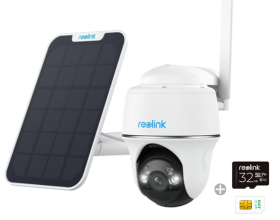How Long Do Security Cameras Keep Footage

Security cameras play a vital role in protecting homes, businesses, and public places, deterring crime, monitoring activity, and providing valuable evidence in the event of an incident. Understanding how long security cameras retain footage is essential for effective monitoring and ensuring that important footage is available when needed.
How is Security Camera Footage Stored
Security camera footage can be stored in various ways.
- Local Storage (SD Cards): Many modern cameras have built-in SD card slots that store footage directly on the card. This method is cost-effective and easy to manage. However, storage capacity is limited to the size of the SD card, typically ranging from 32GB to 256GB.
- Network Video Recorders (NVR) and Digital Video Recorders (DVR): These systems connect to multiple cameras and store footage on a hard drive. NVRs and DVRs can support extensive storage, making them suitable for large surveillance setups. They offer centralized storage and easier access to footage.
- Cloud Storage: Cloud-based solutions store footage online, offering scalability and remote access. While this option usually comes with a subscription fee, it provides robust storage options and the ability to access recordings from anywhere with an internet connection.
Factors Affecting Security Camera Storage Capacity
- Resolution: Higher resolution footage (e.g., 4K) provides clearer images but requires more storage space than lower resolution (e.g., 720p or 1080p)
- Frame Rate: Cameras that record at a higher frame rate (frames per second) capture more detail but use more storage. A standard frame rate is 15-30 FPS.
- Compression Technology: Using efficient video compression technologies like H.264 or H.265 can significantly reduce the amount of storage space required without compromising quality.
- Recording Mode: Continuous recording uses more storage than motion-triggered recording, which only captures footage when detecting activity.
How to Make Security Camera Footage Last Longer
To maximize the duration your security camera can store footage, consider these strategies:
- Use Motion Detection: Configure your camera to record only when motion is detected, which reduces the amount of footage stored and extends storage time.
- Lower Resolution and Frame Rate: Adjusting the camera settings to a lower resolution or frame rate can save storage space, though it may slightly reduce image quality.
- Expand Storage Capacity: Upgrade to higher capacity SD cards or add additional hard drives to NVR/DVR systems to increase storage.
- Regularly Backup Footage: Implementing regular backups to external drives or cloud storage ensures that footage is kept safe and archived efficiently.
Can Deleted Footage Be Recovered
Accidental deletion or intentional erasure of surveillance camera footage is a common concern. Whether deleted footage can be recovered depends on several factors:
- Type of Storage: If the footage was stored on an SD card or hard drive and has not been overwritten, recovery software may be able to retrieve the deleted files.
- Cloud Storage: Some cloud storage services offer a “recycle bin” feature where deleted footage is stored temporarily before permanent deletion, making recovery possible within a set timeframe.
- NVR/DVR Systems: These systems often have features that can help retrieve deleted footage, provided it has not been overwritten by new recordings.
- Professional Data Recovery Services: In critical cases, hiring professional data recovery experts can increase the likelihood of recovering deleted footage, although this can be costly and is not guaranteed.
How Much Storage Space Do I Need
Determining how much storage space you need depends on the number of cameras, recording quality, and your retention requirements. Here’s a general guideline:
- Home Security: A single 1080p camera recording continuously may need around 30-50GB per week. Using motion detection can reduce this to 10-20GB.
- Small Business: A setup with 4-8 cameras may require 1-2TB of storage to keep footage for 2-4 weeks.
- Large Enterprises: High-resolution cameras and longer retention periods could require several terabytes of storage.
What Are the Legal Requirements for Retaining Security Camera Footage
But how do you determine the right amount of storage space for your specific needs? Legal requirements for retaining security camera footage vary significantly depending on the industry and regulatory environment.
Below is an overview of typical retention periods across various sectors:
|
Industry |
Typical Retention Period |
Notes |
|
Banking |
90 days to 6 months |
For fraud and theft prevention, longer retention is common. |
|
Healthcare |
30 days to 90 days |
Required for patient safety and incident investigations. |
|
Retail |
30 days to 6 months |
Varies by store size and location; used for theft prevention. |
|
Hospitality (Hotels) |
30 to 90 days |
Ensures guest safety; aids in investigating incidents. |
|
Financial Institutions |
90 days to 1 year |
Critical for monitoring high-value transactions. |
|
Casinos |
6 months to 1 year |
Regulatory requirements for monitoring gambling activities. |
|
Government & Public |
90 days to 1 year |
Used for public safety and crime prevention. |
|
Education |
14 to 30 days |
Used for ensuring student safety in schools and universities. |
|
Transportation |
30 to 90 days |
Helps in investigating accidents and enhancing security. |
These retention periods are general guidelines and may vary depending on specific legal requirements, company policies, and regional regulations. Businesses and organizations must consult with legal professionals to comply with applicable laws and implement proper data retention practices to protect privacy and security.
Recommended Security Camera with Multi-Storage
If you are looking for a home security camera that offers multi-storage, consider this 4G security camera. It maximizes storage time while maintaining security video quality and security features.
- Plug & Play
- Cloud storage and TF cards storage
- AI humanoid detection
- Full-colour night vision
- Two-way voice real-time intercom
- Motion detection
- Battery / Solar Powered
- IP66 waterproof and dustproof protection
Conclusion
Understanding how long security cameras keep footage and how to manage storage effectively is crucial for both security and compliance. By considering factors like resolution, recording mode, and storage options, you can optimize your security system to meet your needs.


























